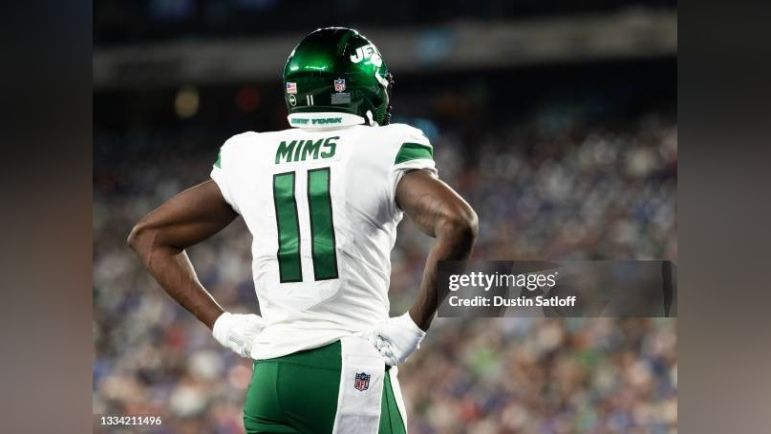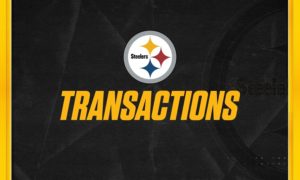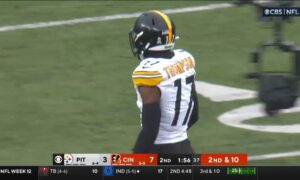Player: WR Denzel Mims
Stock Value: Sold
Reasoning: While not announced yet, the Steelers have officially waived WR Denzel Mims. A former second-round pick, he spent last season on the practice squad, hoping to earn a spot in 2024. They did not waive him injured, so this appears to be a case of simply moving on.
Those who held out hopes that the Steelers would suddenly unlock Denzel Mims’ potential can begin the grieving process now. They officially released him yesterday, creating an opening on the 90-man roster. We will have to see what they do with it, but barring a trade, I doubt it’s another wide receiver.
The Steelers have a pretty wide-open competition at wide receiver behind George Pickens. One would think that a player with any sort of talent could push his way into that mix. Evidently, however, they did not feel that Mims was up to the task. Not that they will tell us exactly why they waived him, especially given the down time.
A former second-round pick of the New York Jets, Denzel Mims has played 988 snaps since 2020. He never saw the field last season, spending the year on the Steelers’ practice squad. Or most of it, anyway, after they signed him in October.
At 6-3, 207 pounds, Mims is an impressive physical specimen. He ran a sub-4-4 40-yard dash and looked to be the next great thing coming out of Baylor. Now is he looking for his fourth NFL team, having never played a snap for two of his previous teams.
The Jets traded Mims to the Detroit Lions in July of last year for a conditional late-round pick swap. They waived him with an injury designation in mid-August, the Steelers signing him a month and a half later to the practice squad.
They got several months’ worth of looks at Mims while he was on the practice squad, deciding to re-sign him. After going through OTAs and minicamp, however, they waived him without an injury designation. How many more chances will teams give him before he has to move on to his life’s work?
As the season progresses, Steelers players’ stocks rise and fall. The nature of the evaluation differs with the time of year, with in-season considerations being more often short-term. Considerations in the offseason often have broader implications, particularly when players lose their jobs, or the team signs someone. This time of year is full of transactions, whether minor or major.
A bad game, a new contract, an injury, a promotion—any number of things affect a player’s value. Think of it as a stock on the market, based on speculation. You’ll feel better about a player after a good game, or worse after a bad one. Some stock updates are minor, while others are likely to be quite drastic, so bear in mind the degree. I’ll do my best to explain the nature of that in the reasoning section of each column.








